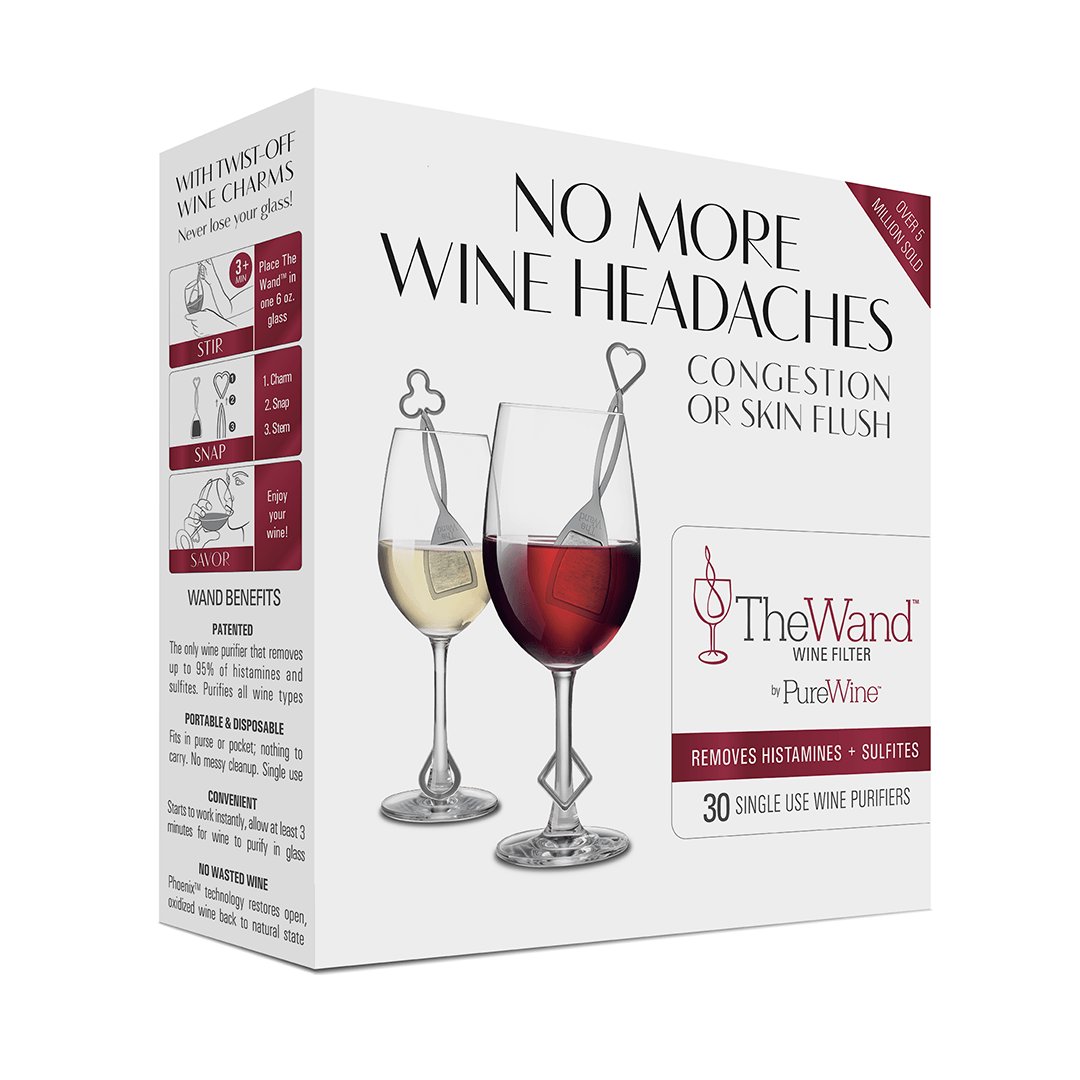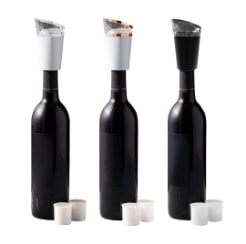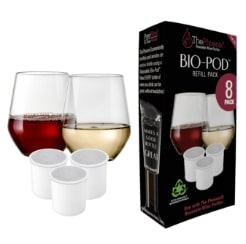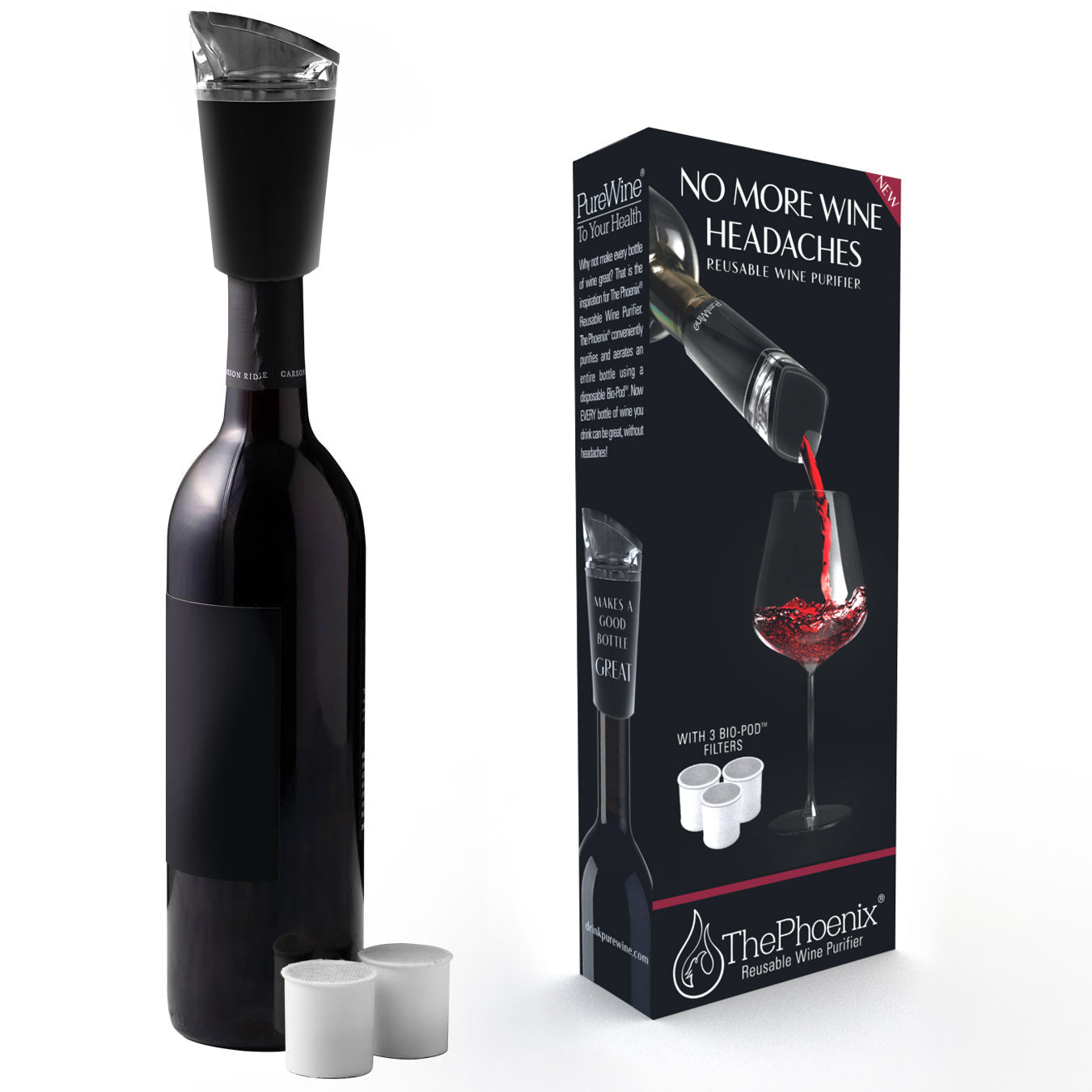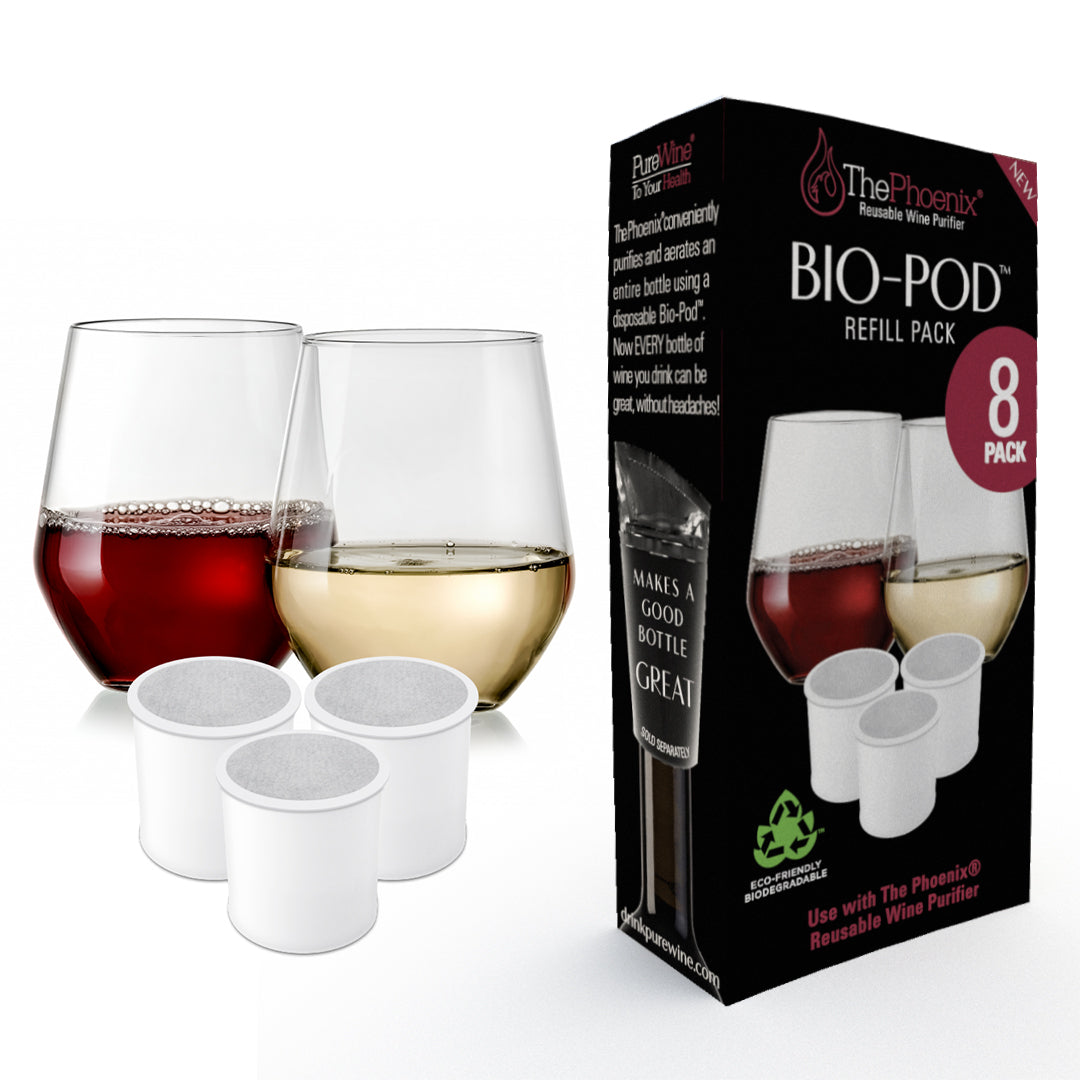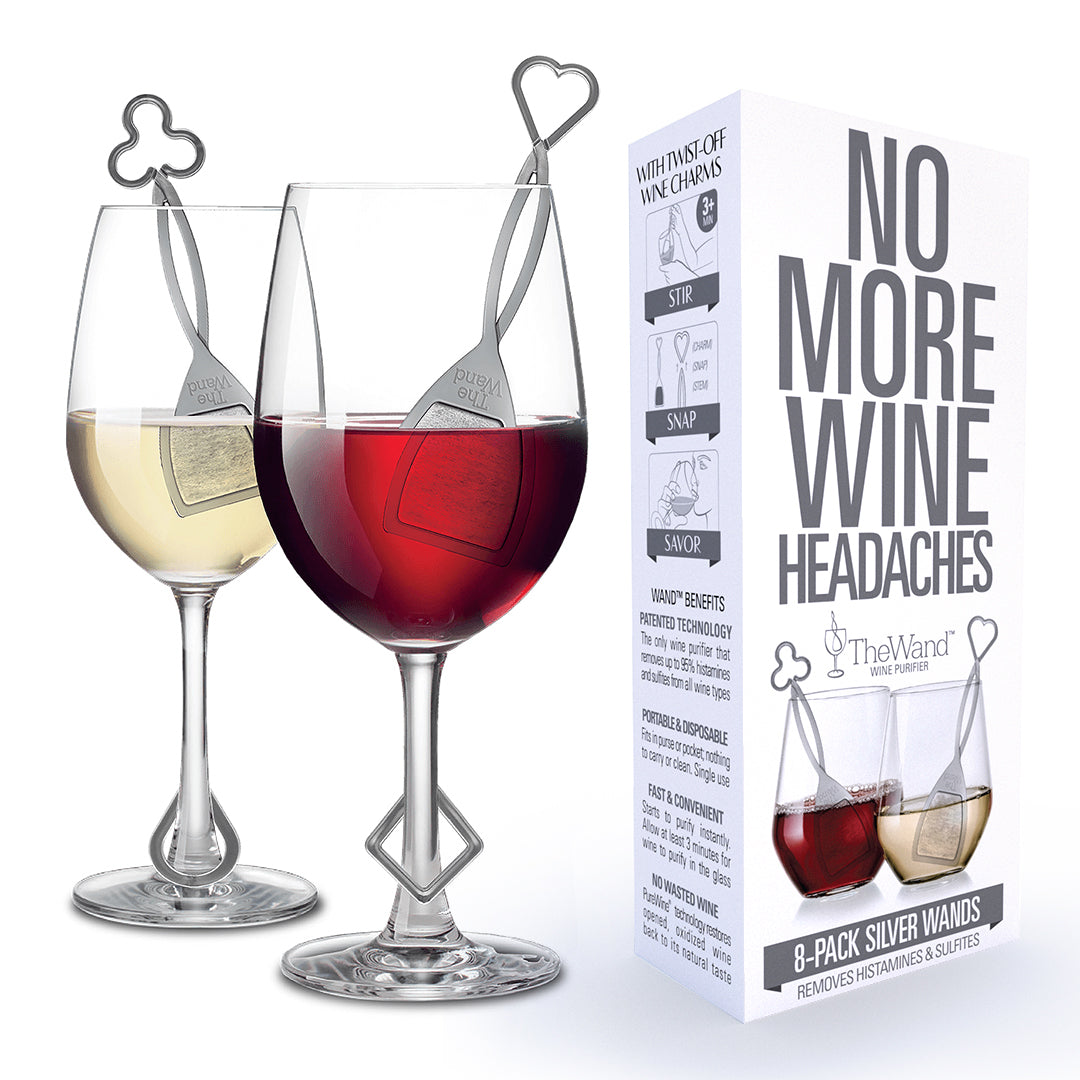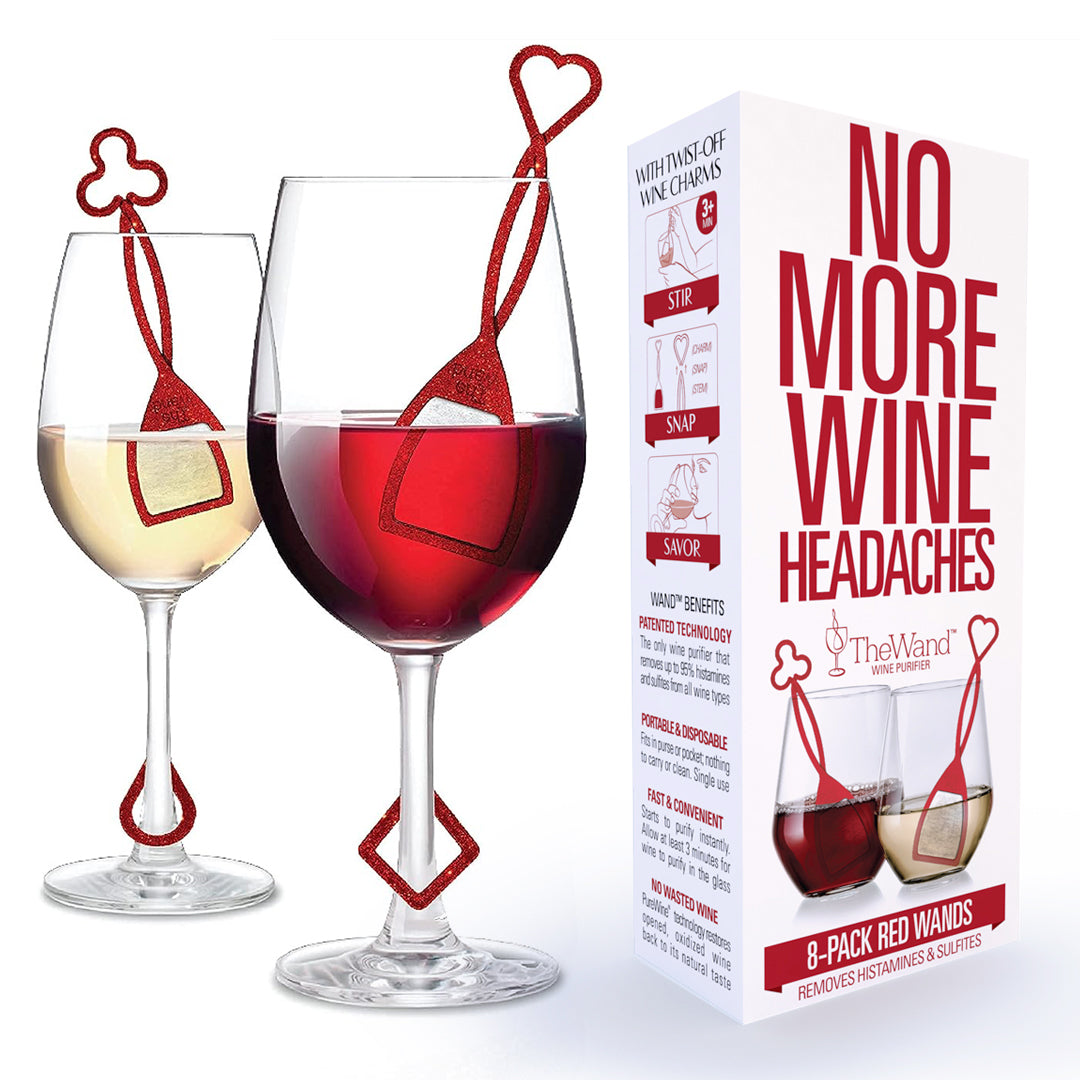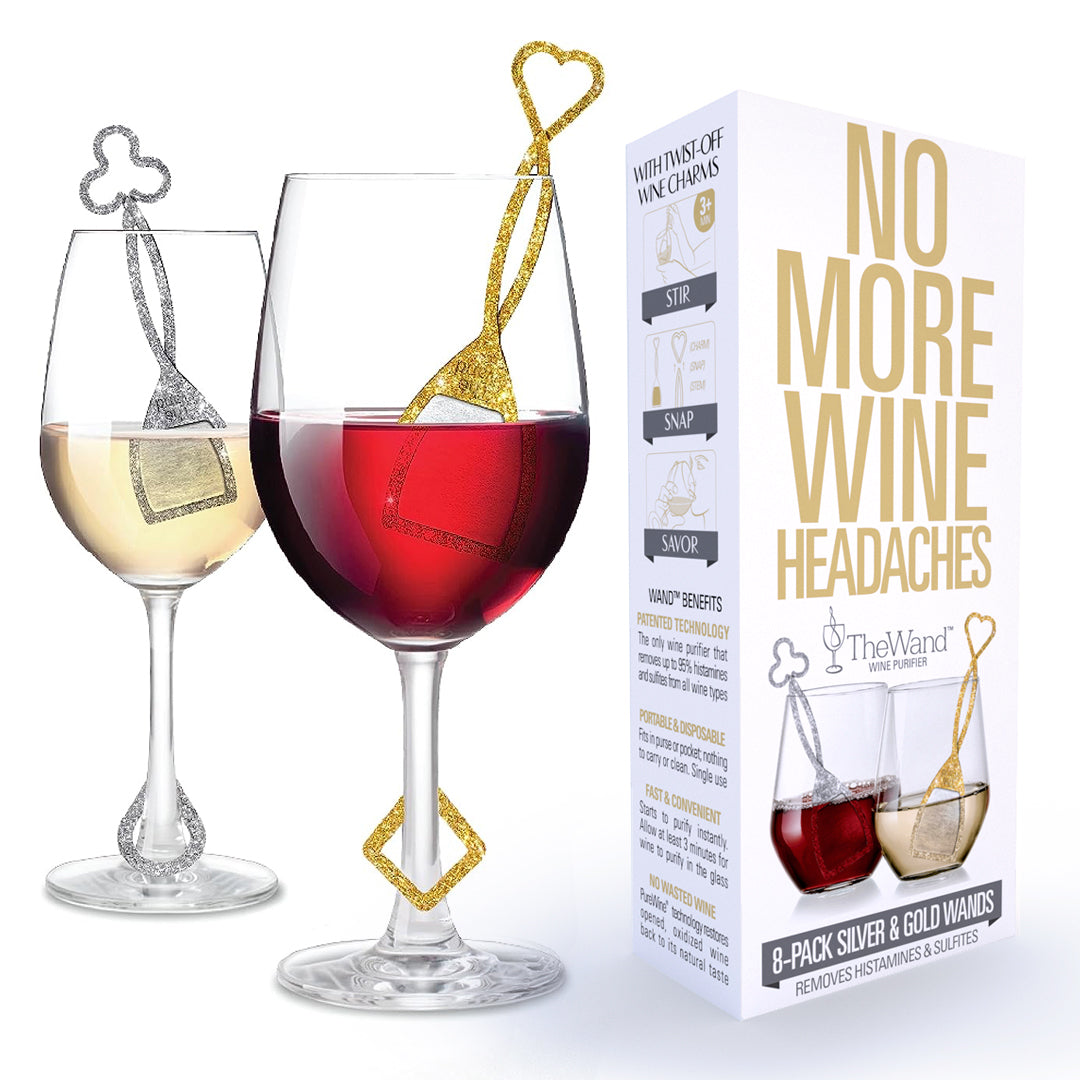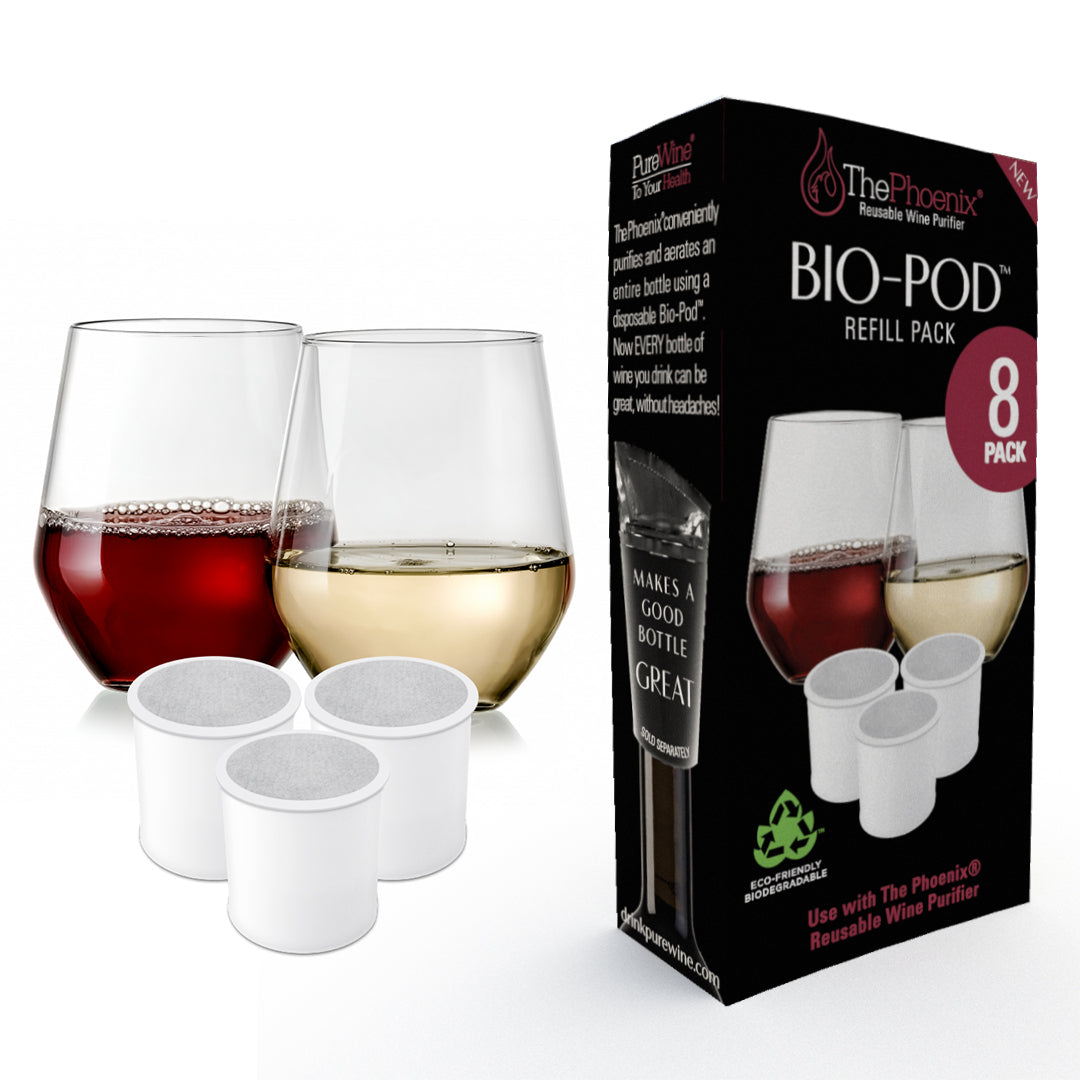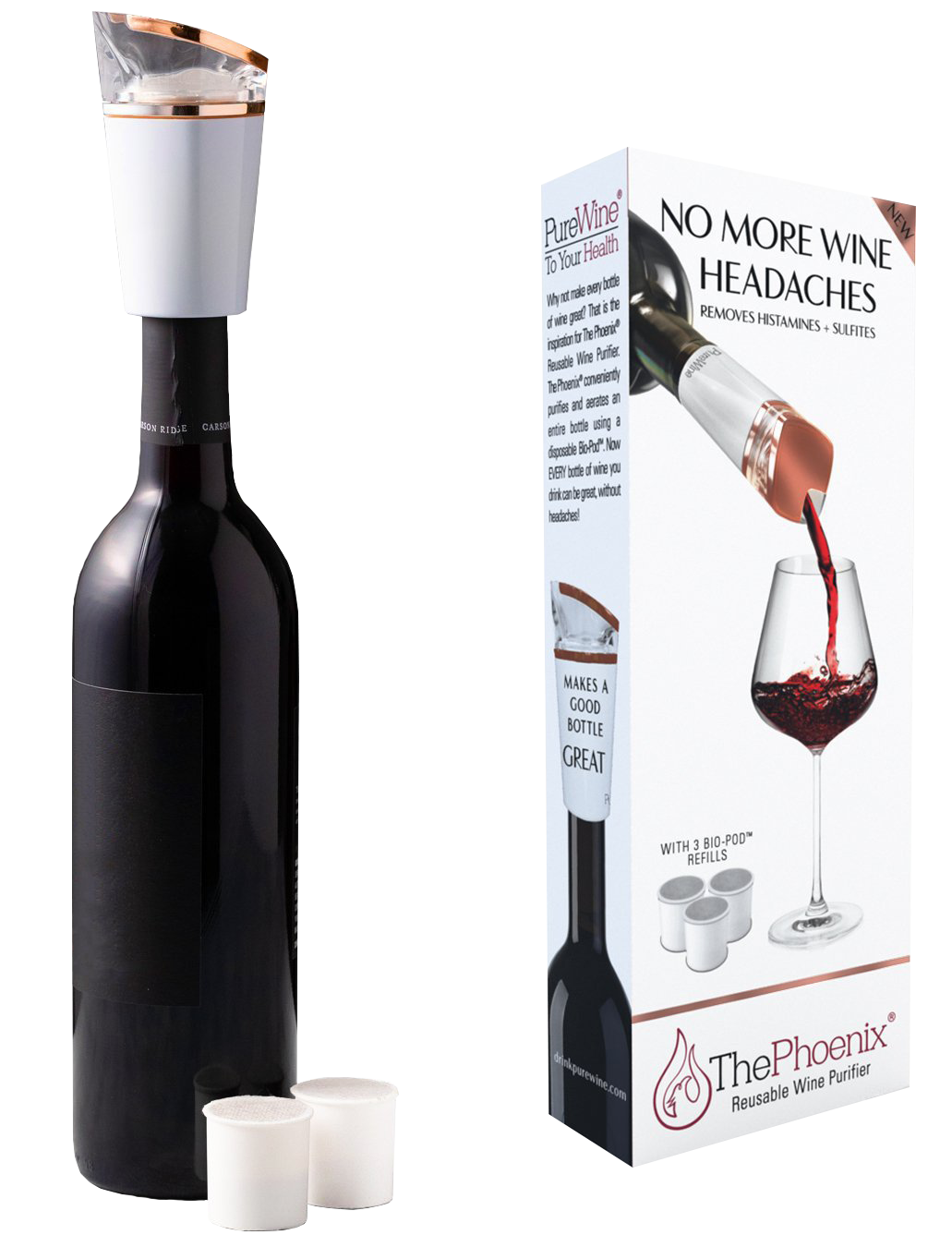Natural Wine - The Ultimate Guide to the Trendy Style
You’ve undoubtedly heard about natural wine. Right now, it’s the hottest trend in the wine world, and some people are so committed to the cause that they won’t sell or drink anything not considered natural.
It’s easy to see why. After all, we’ve been steering away from processed food and artificial ingredients for the last few decades. Why not drink natural wine as well? The thing with this interesting type of fermented grape juice is that it’s harder to define than you think. Here’s the ultimate guide to natural wine. All its secrets revealed, and all your questions answered.
Natural Wine Guide
We’re walking you through what natural wine is, followed by a thorough explanation about sulfites in wine and the difference between natural, organic and biodynamic wine. Finally, we’re talking about what natural wines taste and answering your most pressing questions!
After reading this guide, you’ll be a natural wine expert. Is the wine style for you? Only you can answer that, but at least you’ll make an informed decision. Let’s say it out loud — wine is fun! And learning more about it is the best way of enjoying it even more.
What is Natural Wine?
The problem with defining natural wine is that no one seems to agree with what it is. There are no laws to govern the wine style, only an agreement between winemakers, and not all winemakers are as committed to the cause.
Today, everyone can label its wine as natural, even if it isn’t, so knowing your producers pays off. You can trust the most reliable winemakers — if they say theirs is a natural wine, it probably is. Besides, you need not trust a wine label to know if the wine you’re drinking is made naturally — you can taste it!
So, what is natural wine? It all starts like regular wine in the vineyard, where ideally, no chemical fertilizers, pesticides or herbicides are used. It comes without saying that’s no easy feat, as the vine has many enemies, including insects, molds and fungi.

Do Sulfites Occur Naturally in Wine?
Yes, sulfites are the natural byproduct of all fermentation processes that occur when making bread, cheese, yogurt, beer, aged meats, sauerkraut and of course, wine. However, this doesn't account for the sulfite levels in most wines. Once the grapes are harvested, a commercial winery not committed to the natural philosophy will press them and spray the must with sulfur dioxide, AKA sulfites, to sterilize the fruit. A natural winemaker will leave it as-is.
Natural wine then ferments spontaneously with ambient “wild strain” yeast and not the store-bought stuff that comes in a packet. Finally, regular wine gets an extra dose of sulfites before bottling to give the wine a longer shelf-life. Natural wine doesn’t enjoy that benefit.
Are Sulfites In Wine Bad for You?
For the average wine consumer, sulfites are not all that bad. After all, they’re a chemical found in nature that’s actually produced naturally in small quantities during grape fermentation. Still, to make a clean, shelf-stable wine, commercial winemakers add a bit more sulfites throughout the process.
The Ancient Romans already knew about the antiseptic properties of sulfur dioxide, and they burned sulfur candles inside their barrels and wine vessels to sterilize them. That practice lives on to this day.
Natural winemakers will not add extra sulfites to the wine; therefore, the wine is never sterilized. In a way, we could say the wine is alive thanks to the very many types of yeast and microorganisms in the wine.
Why Do Wine Bottles Have the “Contains Sulfites” Warning?
According to the Alcohol and Tobacco Tax and Trade Bureau, in the US, “the statement is required where sulfur dioxide or a sulfiting agent is detected at a level of 10 or more parts per million (ppm).” There’s also an upper limit of 350 ppm. In the European Union, the upper limit is set at 210 ppm of sulfur dioxide in white wine and 160 ppm for red wine. Actually, most commercial wine contains an average of 50 ppm.
Are sulfites bad for you? Some people are sensitive and even allergic to the substance, especially if they have asthma. Still, sulfites are harmless for most people. Keep in mind that there are more sulfites in dried fruit, pickles, potato chips and French fries than in wine.

Natural Wine vs. Wine - All About a Non-Interventionist Approach
What makes natural wine truly a natural agricultural product, utterly different from industrial wine, is more than the absence of sulfites. Not without controversy, the following are ideal standards to make natural wine.
Natural Wine Standards
- Natural wine must be made with organic grapes.
- No sulfites should be added throughout the entire process, from the vineyard to the bottle.
- Natural wine should not be ‘chaptalized,’ meaning wine with added sugar to increase its alcohol content (ABV).
- Natural wine should not be acidified artificially.
- Natural wine should not have artificial pigments or tannins, often used to improve the color and mouth texture of the wine.
- New oak barrels must not taint natural wine, considered by many as artificial aromatizing agents.
- Natural wine must be made with a non-interventionist approach, meaning the winemaker shouldn’t use flash-pasteurization, reverse osmosis, clarification or filtration.
As you can imagine, not all natural winemakers agree with the statements above, and with no law restricting additives or winemaking techniques, natural wine can mean different things to different people. Let’s just say that for natural wine is not all black or white. Most winemakers work within a gray area.
Natural Wine vs Organic Wine - What is the Difference?
Organic wine is different from natural wines since there are strict laws and rules winemakers must follow to label wine as organic.
Organic wine is the product of organic farming. Growing grapes with no chemical treatments or sprays, whether they’re fertilizers, herbicides or pesticides. Most organic winemakers, though, will spray the grapes with sulfites during the winemaking process. There’s a significant difference between ‘wine made with organic grapes’ and organic wine. The latter should not have (or have minimal) additives (including SO2) during the winemaking process.
As stated by the USDA, for wine made with organic grapes, “both the growing of the grapes and their conversion to wine must be certified.” The yeast must also be organic, and “any non-agricultural ingredients must be specifically allowed on the National List of Allowed and Prohibited Substances and can’t exceed 5% of the total product.” Wine made with organic grapes can have sulfites up to 100 parts per million.
Organic wine is made with organic grapes, of course. It might be chaptalized or acidified, and it can spend time in oak barrels. There’s no doubt organic wine and natural wine share similarities, but for the purists, they’re entirely different beverages.

Natural Wine vs. Biodynamic Wine - What is the Difference?
Biodynamic farming looks as if it came from a science fiction novel. The farmers, in this case, grape growers, adhere to a moon calendar and schedule the work on the farm according to the position of the moon and stars. The days in the biodynamic calendar are classified as fruit days (great for harvesting), root days (pruning), leaf days (watering) and flower days (for nothing at all).
The soil is treated with unique all-natural fertilizers, including manure, herbs and flowers. As an example, here is one of the most unusual biodynamic preparations:
Preparation 500: Cow dung from lactating cows stuffed in a cow’s horn from a cow that has calved at least once, placed in a safe spot under the sun for a week and buried in the ground for a month.
And although using quartz, horsetail, cows’ horns and dandelion to fertilize the earth and apply them to the field on the correct date according to the stars might sound silly, biodynamic wine is seriously good. No one knows why, but it’s true!
We should mention certifying agencies for biodynamic wines are as strict as they come, and gaining such certification is one of the most complicated things to achieve in the world of growing wine grapes.
Biodynamic wines can have up to 100 ppm of sulfites, though, so are they natural? Well, that depends on what natural wines are for you.
Natural Wine FAQ
What Does Natural Wine Taste Like?
In theory, natural wine shouldn’t taste much different from regular wine. Sure, bacteria and foreign yeast add a certain ‘funk’ to the wine, which is quite attractive for some folks. The wines are often rustic and nuanced. The problem with natural wine is that the many microorganisms in the wine can go rogue and ruin the wine.
Now, if the wine tastes oxidized or vinegary, it may have gone bad. No wine, not even natural wine, should have a foul scent or a decomposed flavor.
Finding lactic acid aromas, or even animal scents, including leather or barnyard, is common in natural wines. These taste and aroma profiles can be quite enjoyable as long as they don’t overpower the fruit aroma. We all love natural wine, but the natural wine movement shouldn’t be an excuse for winemakers to bottle lousy wine.
Part of the problem is that natural wine doesn’t travel well if it isn’t protected by sulfites. Also, you can seldom store natural wine bottles for long periods. The bottled wine still contains live microorganisms (yeast, bacteria, molds) and continues to evolve until it goes past its peak enjoyability. Natural wine is not a sterile, clean beverage like industrial wine, but that’s part of its charm!
Will Natural Wine Give me A Hangover?
If you’re sensitive to sulfites, they might cause you headaches and respiratory problems. Some sources say 3 to 10 percent of people with asthma have sulfite sensitivity. For the rest of us, sulfites will not give us a hangover.
Don’t go blaming sulfites for your hangovers, and drink wine in moderation. And if you feel you might be sensitive to sulfur dioxide, talk to a doctor. Or use one of our wine filter products to remove sulfites and histamines.
Does Natural Wine Age in the Same Way as Ordinary Wine?
95% of the wine produced globally is not meant to be aged. White wines are best enjoyed within the first three years after the harvest, and the same goes for rosé.
Red wines withstand the test of time a bit better, thanks to their higher alcohol content, pigments that are antioxidants and their tannins (the gritty particles that cause dryness in your mouth). Still, most red wines are best enjoyed for up to five years after harvest.
It goes without saying, you can enjoy some red and white wines after decades, and the wine gets better over time! Of course, this type of wine is rare, and you can tell from the higher price. Age-worthy wines are true collectors’ items.
So, does natural wine age in the same way as ordinary wine? Generally, no. Natural wine is bottled unfined and unfiltered, and it isn’t sterilized with SO2. This means there are microorganisms still alive in that bottle, and they keep on altering the wine’s composition. That’s not a bad thing or anything, but you won’t find many bottles of natural wine meant to be enjoyed ten years down the line. You’ll be surprised by some of the most talented winemakers, though!
Is Natural Wine Good for the Environment?
‘Natural is a strong word,’ but on its own, it means close to nothing. Everything can be natural depending on your point of view.
Natural wine, as explained above, must be made with organic grapes, and that’s where the wine style is good for the environment. Vineyards that haven’t been exposed to chemicals are healthier and are brimming with life. That alone is good for the planet. Organically farmed vineyards don’t pollute the water or damage the population of pollinating insects. A healthy vineyard is, in a way, a balanced ecosystem. As long as natural wine comes from organically (or biodynamically) farmed plots of land, they’re good for the environment.
As for what happens in the winery, there are many ways winemakers can preserve the environment, including using sustainable sources of energy and keeping adequate waste disposal policies — that, of course, goes for any type of wine and not only natural wine.
Even more important than organic, biodynamic and natural winemaking, the industry must strive for sustainable winemaking where everything is taken into consideration. Starting with the proper treatment of workers humanely, to disposing of waste, to using renewable energy and having a positive impact in the community.
Is Natural Wine Vegan?
Natural wine is only vegan if no animal products have been used during the entire process. For some vegans, if a farm uses manure to fertilize the land, the produce coming from it isn’t vegan. Other vegans disagree.
As for wine, there’s a critical step in the winemaking process that takes place right before bottling the wine. It’s called clarification or fining, and it has to do with mixing in an additive to the wine to precipitate any remaining microscopic solid particles. The result is clean, crystal-clear wine.
The problem with the fining process is that most of the fining agents come from animals, including egg whites and isinglass, a compound extracted from fish bladders. Vegan fining agents exist as well, including a type of clay called bentonite. If you want to make sure your bottle of wine is vegan, see if the winemaker used a vegan fining agent, or better yet, that the winemaker bottled the wine, skipping the clarifying process altogether. The wine might be a bit murky and have sediment, though!
The good news? Most natural wines are made with a non-interventionist approach, so it’s bottled unfined and unfiltered. When in doubt, visit the winemaker’s website or ask your neighborhood wine merchant about the process behind the wine.
Natural Wine - Final Thoughts
Natural wine is exciting; there’s no doubt about that. Still, the fact that natural wine means something different for everyone is not what you surely wanted to hear. To enjoy natural wine, you must get to know the producer and its winemaking philosophy. Then, see if its wine is natural enough for you.
And let’s not be overly picky either; wine is all about enjoyment and having a good time with friends and family. If you find a wine you like, by all means, drink up. If you really want to be part of the natural winemaking revolution, then you already know the basics; now, it’s up to you to find a winemaker that gives you what you want.
No, not all bottles of natural wine that reach your cellar will be in perfect condition; it pays off to be a betting man. Still, when you find the right bottle, the complexity in natural wine is beyond compare, and you’ll find hours of satisfaction in every glass. Let’s show natural wine some love!
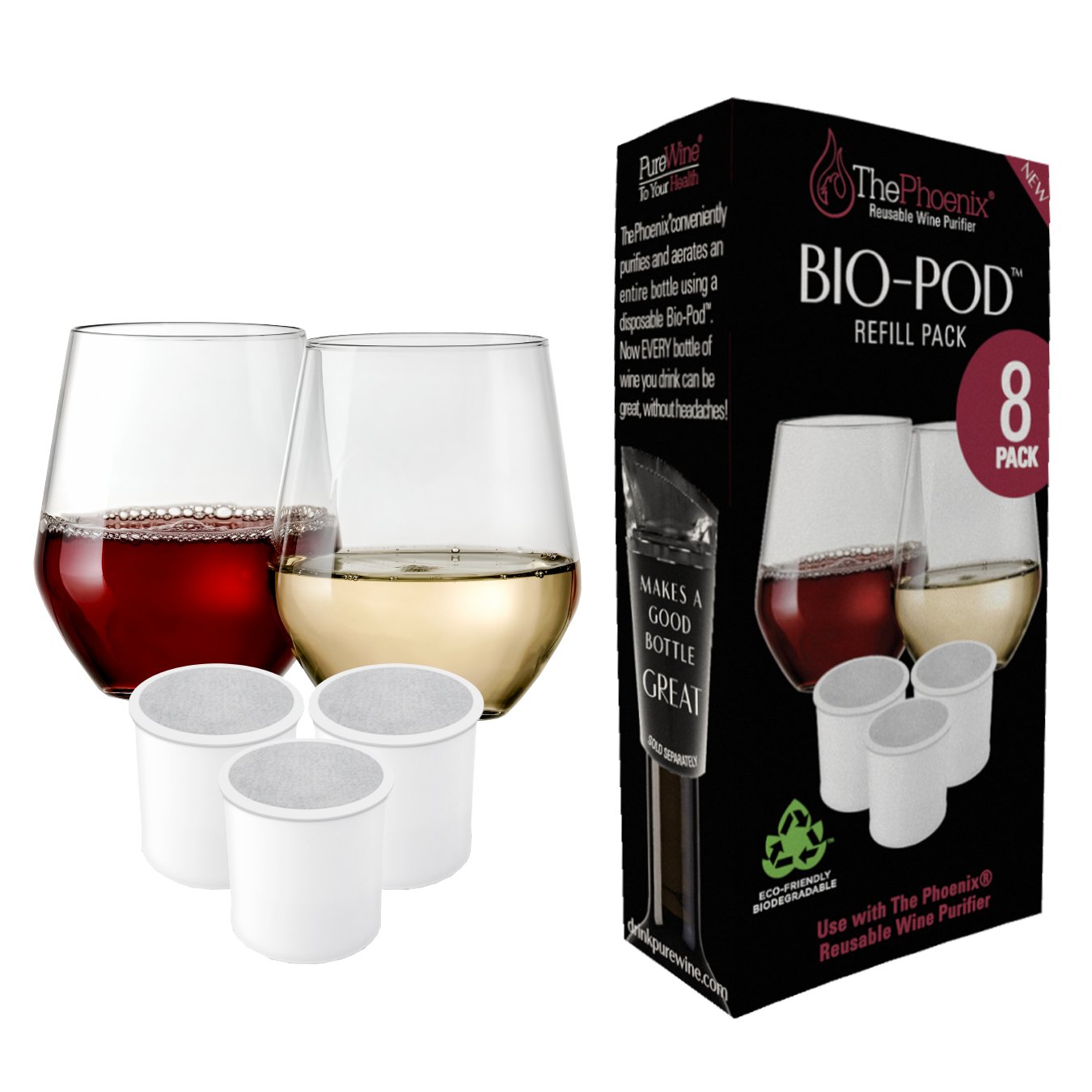
 (20 reviews)
(20 reviews)